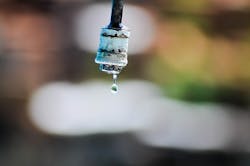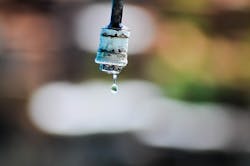2.1 billion people lack access to safe drinking water
GENEVA, Switzerland – Too many people are still lacking access to safe drinking water and sanitation, particularly in rural areas, according to an update on the Sustainable Development Goals.
A new report from the World Health Organisation (WHO) and UNICEF, show that some three in 10 people worldwide, or 2.1 billion, lack access to safe, readily available water at home.
Furthermore, six in 10, or 4.5 billion, lack safely managed sanitation, according to a new report by WHO and UNICEF.
The Joint Monitoring Programme (JMP) report, Progress on drinking water, sanitation and hygiene: 2017 update and Sustainable Development Goal baselines, presents the first global assessment of “safely managed” drinking water and sanitation services.
Billions of people have gained access to basic drinking water and sanitation services since 2000, but these services do not necessarily provide safe water and sanitation. Many homes, healthcare facilities and schools also still lack soap and water for handwashing.
As a result, every year, 361 000 children under five years of age die due to diarrhoea. Poor sanitation and contaminated water are also linked to transmission of diseases such as cholera, dysentery, hepatitis A, and typhoid.
In order to decrease global inequalities, the new Sustainable Development Goals (SDGs) call for ending open defecation and achieving universal access to basic services by 2030.
Of the 2.1 billion people who do not have safely managed water, 844 million do not have even a basic drinking water service. This includes 263 million people who have to spend over 30 minutes per trip collecting water from sources outside the home, and 159 million who still drink untreated water from surface water sources, such as streams or lakes.
In 90 countries, progress towards basic sanitation is too slow, meaning they will not reach universal coverage by 2030.
Of the 4.5 billion people who do not have safely managed sanitation, 2.3 billion still do not have basic sanitation services. This includes 600 million people who share a toilet or latrine with other households, and 892 million people – mostly in rural areas – who defecate in the open. Due to population growth, open defecation is increasing in sub-Saharan Africa and Oceania.
Additional key findings from the report include: in countries experiencing conflict or unrest, children are four times less likely to use basic water services, and two times less likely to use basic sanitation services than children in other countries.
Dr Tedros Adhanom Ghebreyesus, director-general of WHO, said: “Safe water, sanitation and hygiene at home should not be a privilege of only those who are rich or live in urban centres. These are some of the most basic requirements for human health, and all countries have a responsibility to ensure that everyone can access them.”
Anthony Lake, executive director of UNICEF, said: “Safe water, effective sanitation and hygiene are critical to the health of every child and every community – and thus are essential to building stronger, healthier, and more equitable societies. As we improve these services in the most disadvantaged communities and for the most disadvantaged children today, we give them a fairer chance at a better tomorrow.”
###
Read more
Call for sanitation recovery and ‘cholera ceasefire’ in Yemen

